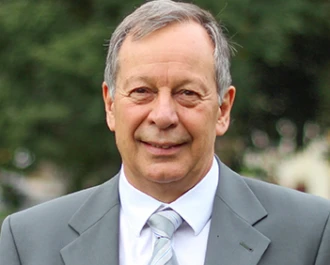
An exciting study by NBCF-funded researchers, Professor Phil Darcy and Associate Professor Paul Beavis has found a potential new way to fight breast cancer and other solid cancers.
These Peter Macallum Cancer Centre researchers have been exploring how to make chimeric antigen receptor (CAR) T-cell therapy, treat breast cancer.
CAR T-cell therapy is a cancer immunotherapy treatment that genetically changes T-cells (a type of immune cell) so they are to better able to recognise and treat cancer. This treatment has been successful in blood cancers but not so effective in solid cancers such as breast cancer. This is because CAR T-cells in the past could not persist long enough in solid cancers to be effective and solid cancers have more defence mechanisms than those found in blood cancers.
This latest game-changing research has found a gene that can make the CAR T-cells younger, fitter, improving their persistence and effectiveness in treating breast cancer.
Professor Darcy explains, “Our research identified a gene called FOXO1 that can enhance CAR T-cell polyfunctionality, metabolic fitness and efficacy against solid tumours.”
“Essentially, it means the new T-cells can use multiple techniques to kill and destroy the cancer cells, are more effective in killing those cells and last longer in the body in a ‘memory state.’”
Cancer cells may also change over time and find ways to avoid destruction by our immune system. When this happens, the immune system needs to be ‘re-trained’ to recognise and attack cancer cells. This new research offers the potential to a unique treatment that uses a person’s own immune system to kill breast cancer cells.
“No other study has looked at using factors to enhance the metabolic fitness of CAR T-cells,” Associate Professor Beavis said. “We’re excited by these results and believe it’s a promising strategy for the treatment of solid cancers.”
Thanks to NBCF funding, the work continues for Professor Darcy and Associate Professor Beavis, to develop the next generation of CAR T-cells to treat breast cancer.
Finding treatments to help stop deaths from breast cancer is one of four research objectives of our Pink Horizon Research Strategy. NBCF funds world-class breast cancer research towards our vision of Zero Deaths from breast cancer.
More News Articles
View all News


